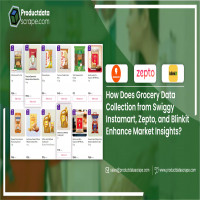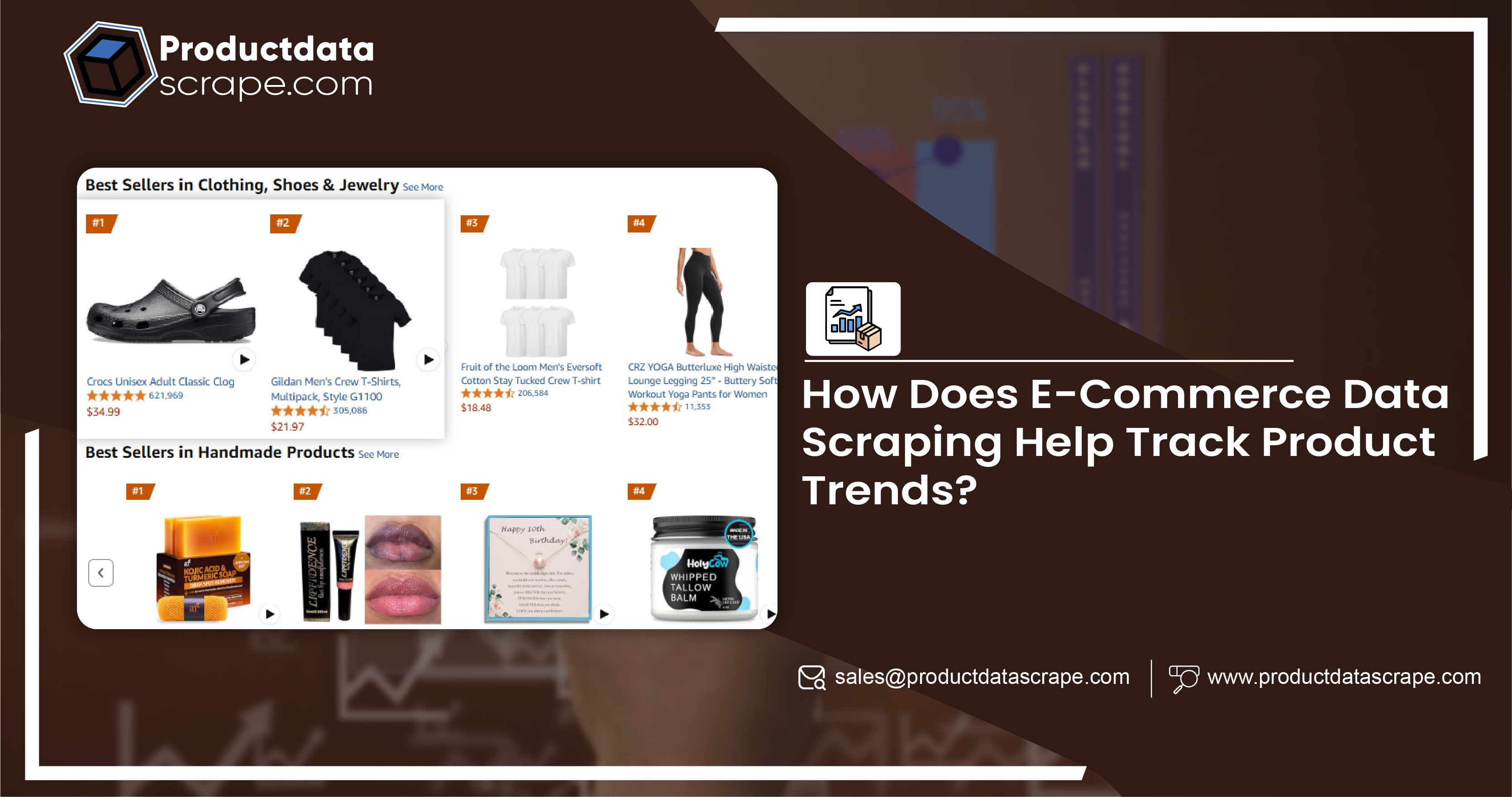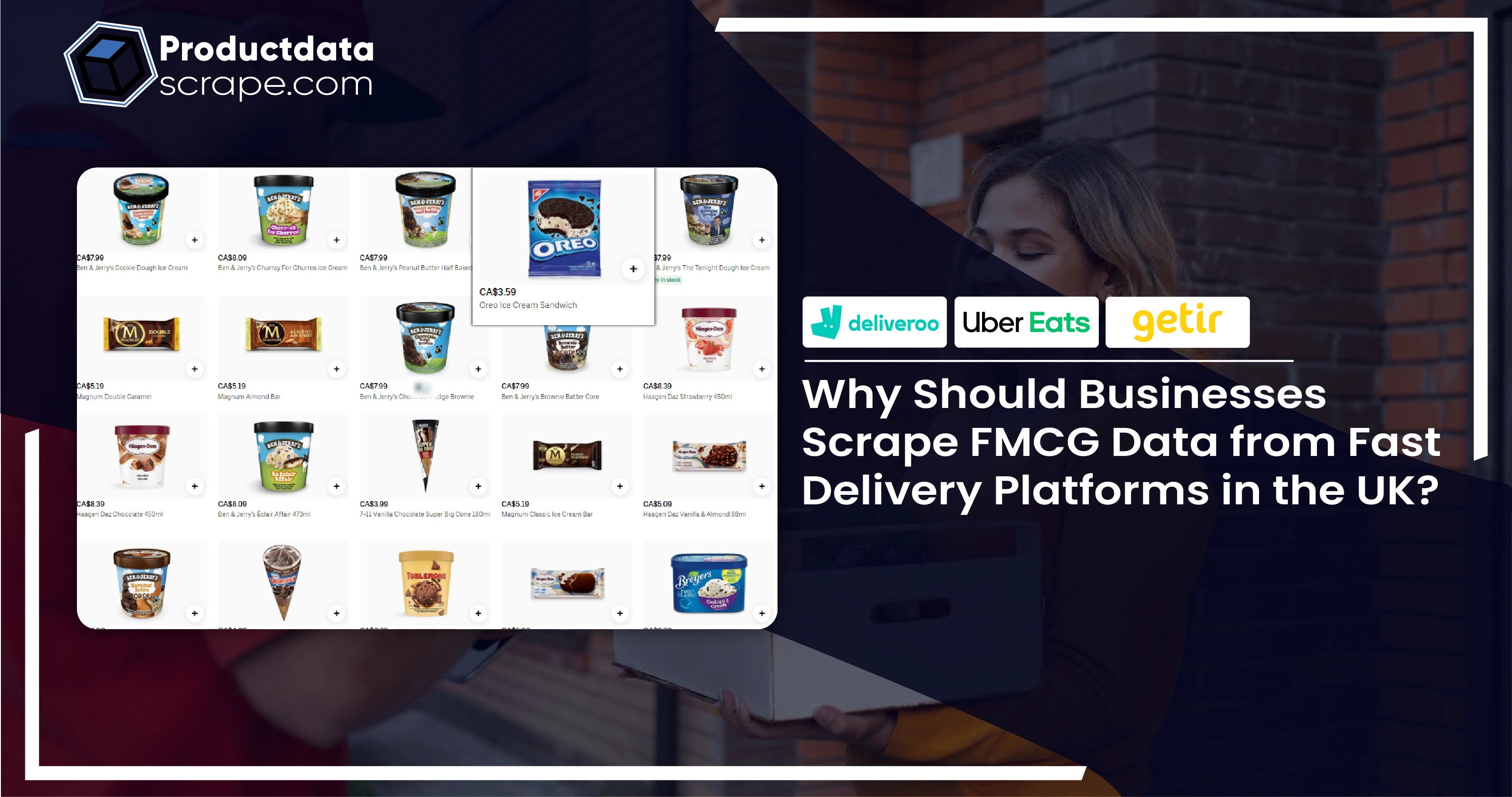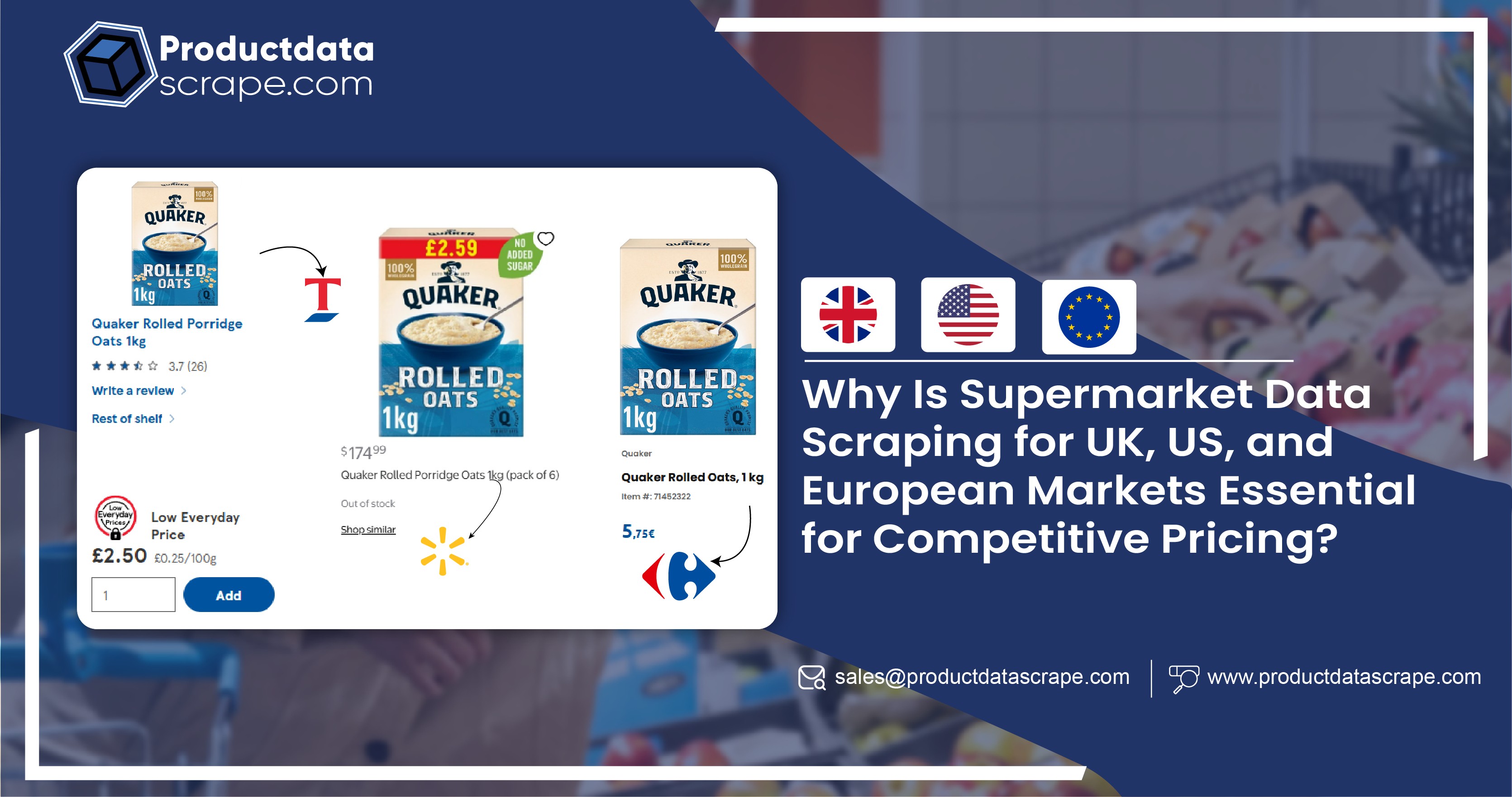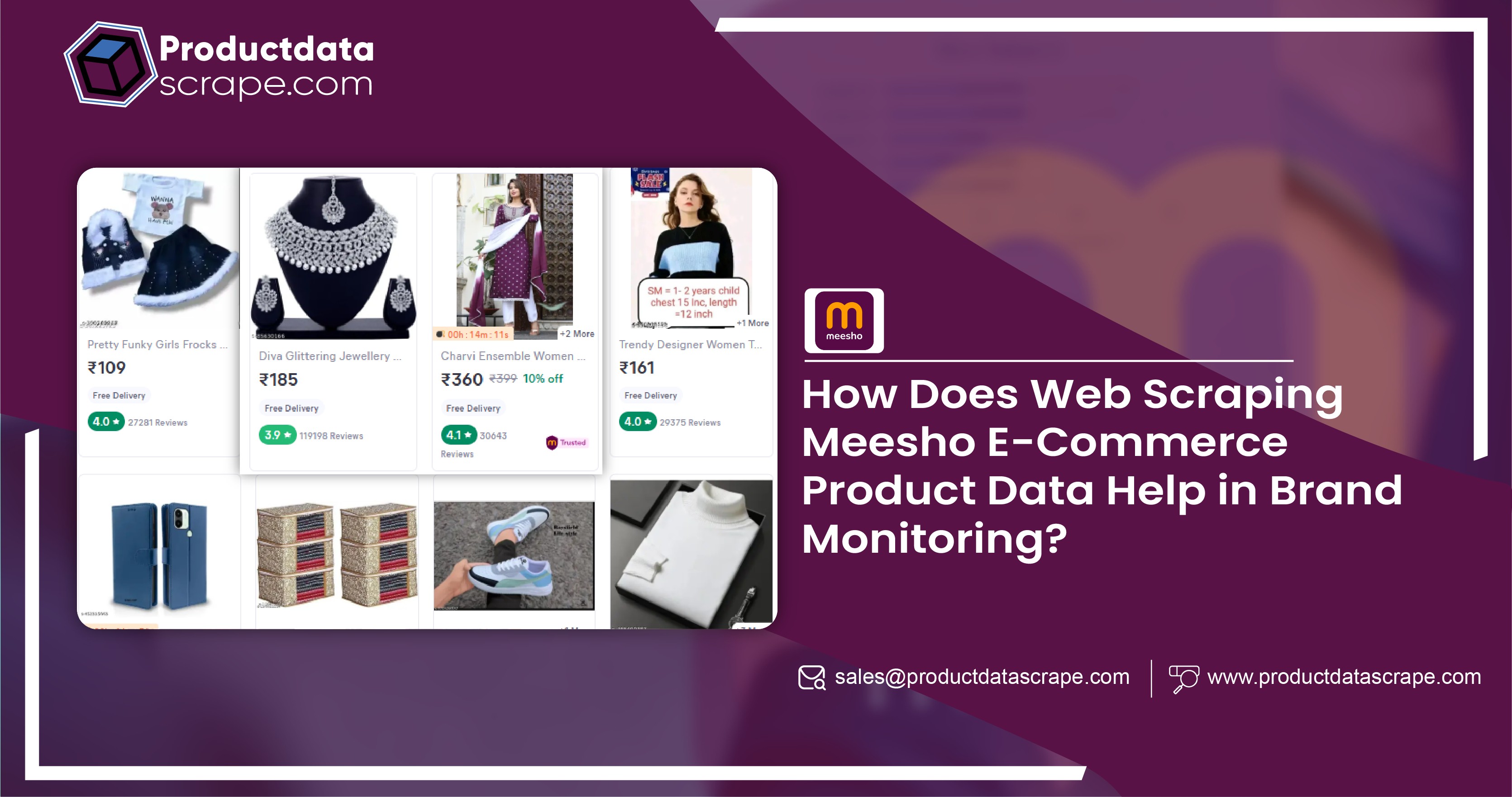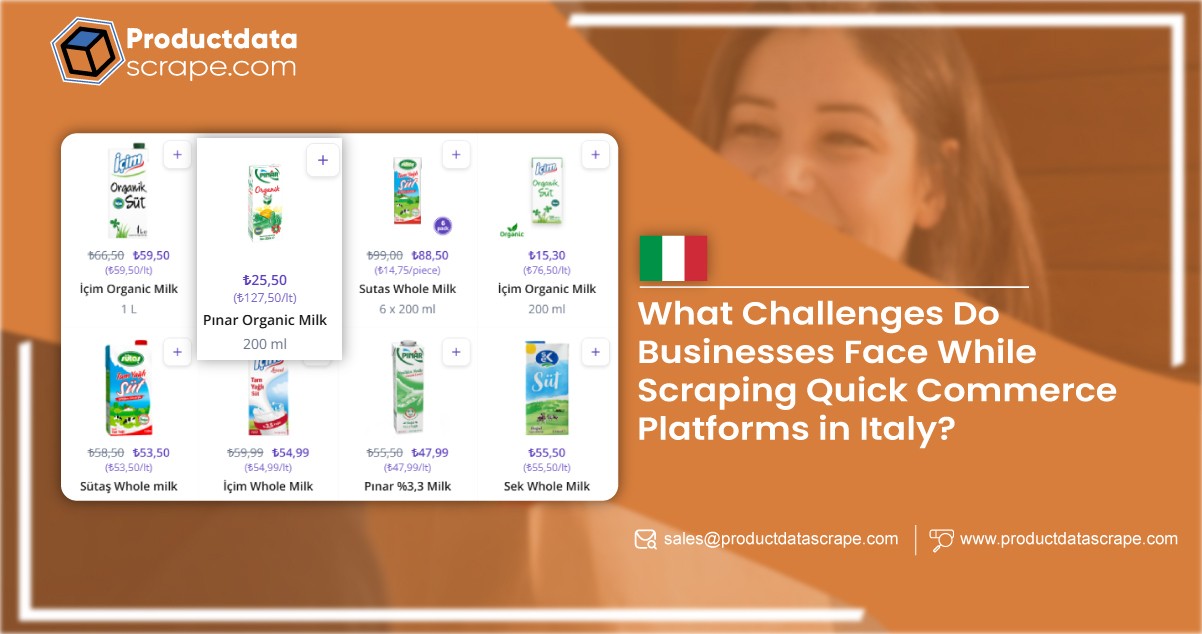Role of Web Scraping EAN-13 and UPC Code Information
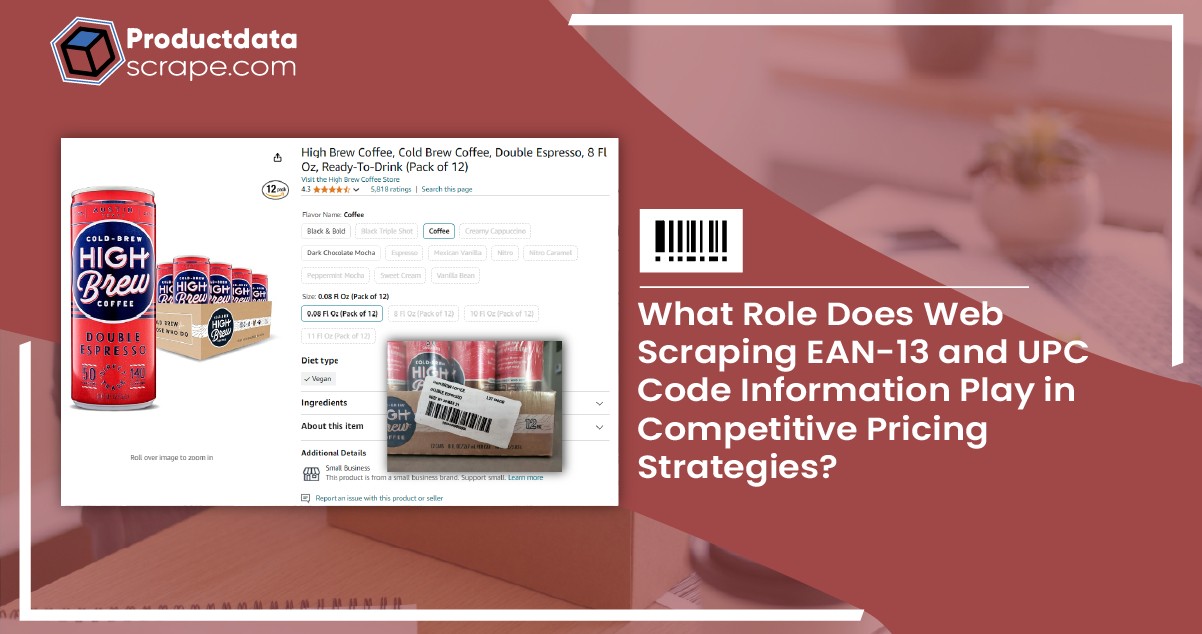
Strong 8k brings an ultra-HD IPTV experience to your living room and your pocket.
What-Role-Does-Web-Scraping-EAN-13-and-UPC-Code-Information-Play-in-Competitive-Pricing-Strategies
Web scraping has become an essential tool for businesses and developers aiming to extract valuable information from vast online data. Web scraping EAN-13 and UPC code information is crucial for product identification among the various data types that can be scraped. EAN-13 and UPC codes are widely recognized standards for inventory management and tracking sales. This article explores the significance of these codes, the benefits of extracting UPC and EAN-13 data from e-commerce platforms, and the potential challenges involved in the scraping process. Key advantages include improved product data accuracy, streamlined supply chain operations, and enhanced consumer insights. However, challenges such as data quality and website structure changes may arise. The future of web scraping in this domain promises technological advancements and more sophisticated scraping tools, ensuring businesses can continue to harness this valuable data for competitive advantage.
Understanding EAN-13 and UPC Codes
EAN-13 Codes
EAN-13-Codes-01
EAN-13 is a 13-digit barcoding standard used primarily outside of North America. It is widely adopted in Europe, Asia, and many other regions. The EAN-13 code comprises three main sections: the country code, the manufacturer code, and the product code, followed by a single check digit. The structure of an EAN-13 code is as follows:
Country Code: The first two or three digits represent the country where the manufacturer is registered.
Manufacturer Code: The next four to six digits identify the manufacturer or brand.
Product Code: The subsequent digits specify the individual product.
Check Digit: The final digit is a calculated value used to verify the accuracy of the code.
The EAN-13 system allows retailers and suppliers to track inventory, manage sales data, and efficiently facilitate distribution.
UPC Codes
UPC-Codes
The UPC code is a 12-digit barcode used primarily in the United States and Canada. It serves a similar purpose as the EAN-13, providing a unique identifier for retail products. A UPC code consists of:
Manufacturer Code: The first six digits identify the manufacturer.
Product Code: The next five digits designate the specific product.
Check Digit: The final digit, calculated based on the preceding numbers, is a validation check.
While the UPC is more common in North America, the global market has seen an increase in adopting both codes, with EAN-13 often used in international settings.
Importance of EAN-13 and UPC Codes in E-commerce
Importance-of-EAN-13-and-UPC-Codes-in-E-commerce
In the world of e-commerce, EAN-13, and UPC codes play a vital role in product identification, inventory management, and customer satisfaction. The following points highlight their significance:
1. Streamlined Inventory Management: Businesses can maintain accurate inventory records using standardized codes like EAN-13 and UPC. This ensures that stock levels are appropriately managed, reducing the risk of overstocking or stockouts. Leveraging a product data web scraping service can enhance this process.
2. Enhanced Product Tracking: EAN-13 and UPC codes enable retailers to track product movement through the supply chain effectively. This capability allows businesses to analyze sales patterns, monitor demand, and optimize inventory levels, benefiting from EAN-13 and UPC product data collection.
3. Improved Customer Experience: Shoppers benefit from the consistency and reliability of EAN-13 and UPC codes. They provide detailed product information and enable easy comparison across platforms. This clarity fosters customer trust and satisfaction, supported by eCommerce product data scraping services.
4. Facilitating Global Trade: As e-commerce expands, a standardized product identification system becomes increasingly crucial. EAN-13 and UPC codes facilitate international transactions and product listings, allowing businesses to enter global markets efficiently. Web scraping e-commerce websites can assist in gathering necessary product data for this purpose.
5. Enhanced Marketing Insights: Data associated with EAN-13 and UPC codes can provide valuable insights into consumer preferences, helping businesses tailor their marketing strategies accordingly.
By incorporating these strategies, companies can significantly enhance their operations and customer engagement in the competitive e-commerce landscape.
Benefits of Web Scraping EAN-13 and UPC Code Information
Benefits-of-Web-Scraping-EAN-13-and-UPC-Code-Information
Web scraping EAN-13 and UPC code information from e-commerce platforms, product databases, and manufacturer websites can offer significant advantages for businesses and developers. Here are several key benefits:
1. Data Aggregation and Analysis: Web scraping enables the collection of vast amounts of data from multiple sources. By aggregating EAN-13 and UPC code information, businesses can analyze market trends, product performance, and pricing strategy.
2. Competitive Pricing Strategies: Retailers can monitor competitors' pricing by scraping product information, including EAN-13 and UPC codes. This data allows businesses to adjust their pricing to remain competitive, benefiting from e- commerce price monitoring services.
3. Improved Product Listings: Accurate product information derived from EAN-13 and UPC codes can enhance product listings on e-commerce platforms. This information helps potential buyers make informed purchasing decisions, ultimately improving sales.
4. Identifying Market Gaps: By analyzing EAN-13 and UPC code data, businesses can identify market gaps and emerging trends. This insight enables companies to innovate and develop products that meet evolving consumer needs.
5. Streamlined Supplier Relationships: Web scraping EAN-13 and UPC information allows businesses to maintain a robust supplier database. This helps companies identify new suppliers and streamline procurement processes, assisting in efforts to extract inventory management from e-commerce.
6. Real-time Data Access: Scraping allows businesses to access real-time data, ensuring they stay updated on product availability, pricing changes, and new product launches. Utilizing web scraping of retail website data can facilitate timely and effective decision-making.
By leveraging these benefits, businesses can enhance their operational efficiency and competitiveness in the dynamic e-commerce landscape.
Bottom of Form
Challenges of Web Scraping EAN-13 and UPC Codes
Challenges-of-Web-Scraping-EAN-1-and-UPC-Codes
Despite its numerous benefits, web scraping EAN-13 and UPC code information comes with challenges. Understanding these challenges is crucial for businesses looking to implement effective scraping strategies:
1. Website Structure Variability: Different websites may have varied structures, making developing a one-size-fits-all scraping solution challenging. Businesses must adapt their scraping techniques to handle different HTML structures and data formats.
2. Legal and Ethical Considerations: Web scraping raises legal and ethical questions, especially concerning intellectual property rights and terms of service violations. Businesses must navigate these issues carefully to avoid potential legal repercussions.
3. IP Blocking and Rate Limiting: Many websites employ measures to prevent scraping, such as IP blocking and rate limiting. Businesses must develop strategies to mitigate these risks, such as rotating IP addresses and implementing delays between requests.
4. Data Quality and Consistency: Scraped data may vary in quality and consistency, necessitating data cleaning and validation processes. Businesses must ensure the accuracy and reliability of the scraped data to derive meaningful insights.
5. Changes in Website Structure: Websites frequently update their layouts and structures, which can disrupt scraping operations. Businesses must continuously monitor and adjust their scraping scripts to accommodate these changes.
6. Dependence on Third-party Sources: Relying on external sources for EAN-13 and UPC code data can be risky, as the information's availability and accuracy may fluctuate. Businesses must develop contingency plans to address potential disruptions.
Best Practices for Web Scraping EAN-13 and UPC Code Information
Best-Practices-for-Web-Scraping-EAN-13-and-UPC-Code-Information
To navigate the challenges associated with web scraping EAN-13 and UPC code information effectively, businesses can adopt several best practices:
1. Respect Robots.txt: Before scraping a website, it's essential to check the robots.txt file, which outlines the site's scraping policies. Respecting these guidelines helps avoid legal complications and fosters positive relationships with website owners.
2. Implement User-Agent Rotation: Businesses should rotate user-agent strings to prevent detection and blocking. This practice mimics various browser requests, making it harder for websites to identify scraping activities.
3. Utilize Headless Browsers: Headless browsers can simulate actual user behavior, enabling more efficient scraping of dynamic websites. This approach is beneficial for sites using JavaScript to render content.
4. Monitor Data Quality: Establish processes for data validation and quality checks to ensure that the scraped EAN-13 and UPC code information is accurate and reliable.
5. Consider API Access: Use official APIs from e-commerce platforms or data providers. APIs often offer a more structured and reliable way to access product information, reducing the risks associated with web scraping.
6. Stay Informed About Legal Changes: As web scraping regulations evolve, businesses must stay informed about legal developments that may impact their activities. Consulting legal experts can help mitigate risks and ensure compliance.
The Future of Web Scraping EAN-13 and UPC Code Information
The-Future-of Web-Scraping-EAN-13-and-UPC-Code-Information-01
As e-commerce grows, the demand for reliable product data will only increase. Web scraping EAN-13 and UPC information will remain valuable for businesses seeking a competitive edge. Several trends and advancements can be anticipated in the future:
1. Integration of Machine Learning: Machine learning algorithms can enhance scraping techniques by automating data extraction and improving data quality. These algorithms can adapt to changes in website structures and optimize scraping strategies.
2. Increased Focus on Data Privacy: As concerns about data privacy grow, businesses must adopt ethical scraping practices and ensure compliance with regulations. This focus on privacy will shape the future of web scraping.
3. Expansion of API Use: As more companies recognize the benefits of API access, the demand for APIs offering product information will likely increase. Businesses may increasingly turn to APIs as a reliable alternative to web scraping.
4. Enhanced Data Analytics Capabilities: Integrating advanced analytics tools will allow businesses to derive deeper insights from scraped EAN-13 and UPC code data. This capability will enable more informed decision-making and strategic planning.
5. Development of Scraping Frameworks: Creating more robust and user-friendly web scraping frameworks will facilitate the process, allowing businesses to extract data more efficiently and with fewer technical challenges.
6. Growing Importance of Real-time Data: The need for real-time data will continue to drive innovations in web scraping techniques. Businesses will seek up-to-date information to make timely decisions in a rapidly changing market.
Conclusion
Web scraping EAN-13 and UPC code information has emerged as a critical strategy for businesses looking to enhance their operations in the e-commerce landscape. Scraping this data offers significant advantages, including streamlining inventory management, improving product listings, and gathering valuable market insights. However, businesses must navigate challenges related to legal compliance, data quality, and website structure variability.
By adopting best practices and staying informed about emerging trends, organizations can harness the power of web scraping to gain a competitive edge in their respective markets. As technology continues to evolve, the future of web scraping for EAN-13 and UPC codes looks promising.
At Product Data Scrape, we strongly emphasize ethical practices across all our services, including Competitor Price Monitoring and Mobile App Data Scraping. Our commitment to transparency and integrity is at the heart of everything we do. With a global presence and a focus on personalized solutions, we aim to exceed client expectations and drive success in data analytics. Our dedication to ethical principles ensures that our operations are both responsible and effective.
Read More>>https://www.productdatascrape.com/web-scraping-ean-upc-code-information-competitive-pricing-strategies.php
#WebScrapingEAN13AndUPCCodeInformation
#ExtractingUPCAndEAN13DataFromEcommerce
#ProductDataWebScrapingService
#ExtractInventoryManagementFromEcommerce
#EAN13AndUPCProductDataCollection
Note: IndiBlogHub features both user-submitted and editorial content. We do not verify third-party contributions. Read our Disclaimer and Privacy Policyfor details.

